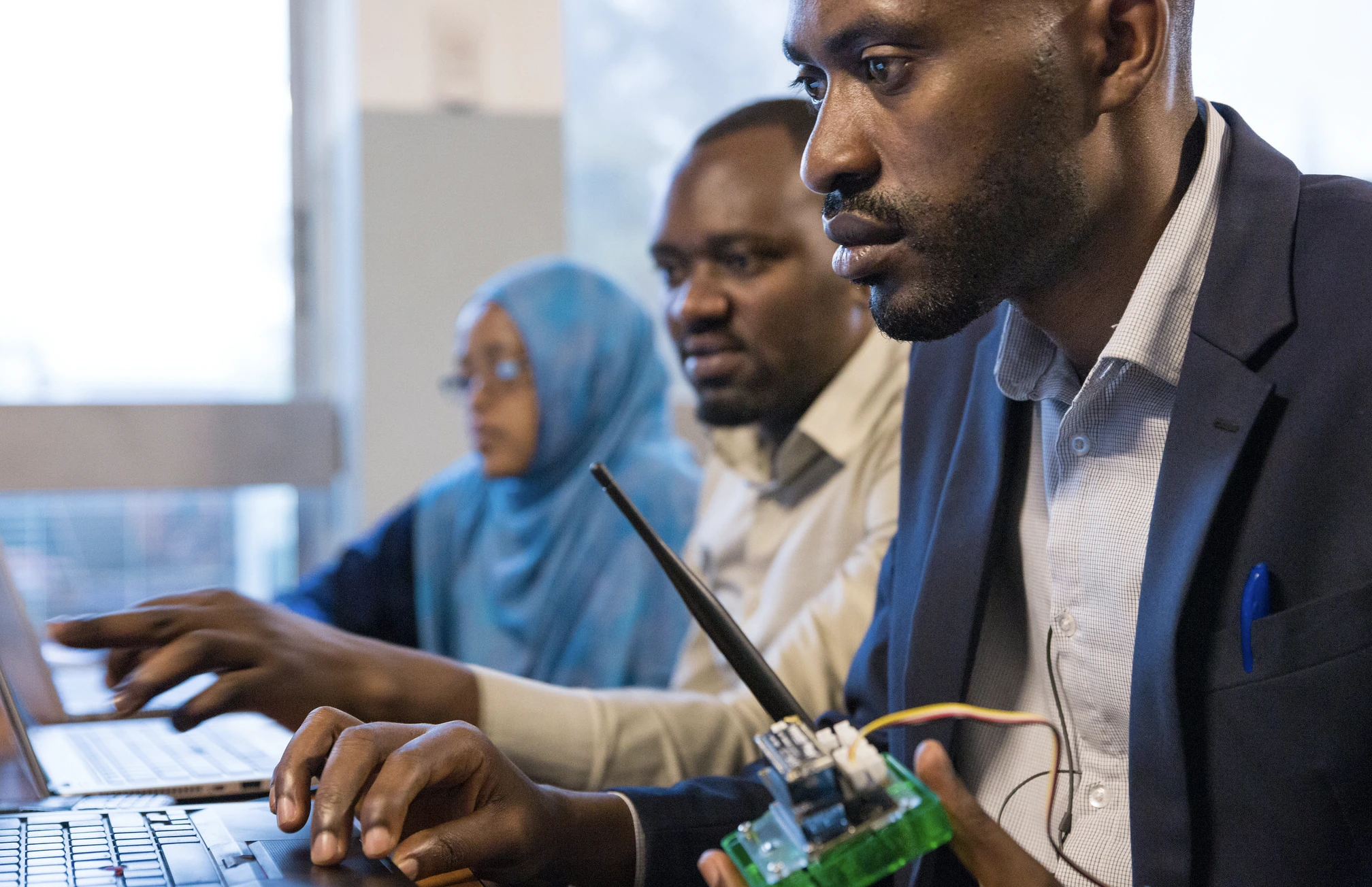
Image by World Bank Of Poto Collection, from Flickr
AI Innovation in Africa: Potential High, But Key Challenges Remain
In a Rush? Here are the Quick Facts!
- Africa’s AI sector struggles due to inadequate funding, infrastructure, and regulatory conflicts.
- African startups are building AI solutions for agriculture, healthcare, and language preservation.
- International funding influences African AI, raising concerns over foreign influence in AI agendas.
Africa’s potential as a major AI player is advancing but faces significant challenges, according to experts gathered at the 2024 Deep Learning Indaba, an annual AI conference, as reported by MIT Technology Review.
Held in Dakar, Senegal, the conference drew over 700 attendees, discussing issues from funding to local-language processing. Researchers believe AI could transform sectors like agriculture, health care, and education, but acknowledge that the path is complex, as reported by the MIT.
Kessel Okinga-Koumu, a computer science student from South Africa, demonstrated a VR-enabled app she developed to simulate lab equipment for students at under-resourced universities.
“Students could have detailed VR of lab equipment, making their hands-on experience more effective,” she explained, highlighting AI’s potential to address educational disparities across Africa, as reported by the MIT.
Since its inception in 2017, the Deep Learning Indaba has expanded its influence to 47 African nations, aiming to foster an AI ecosystem that addresses local challenges, as reported by the MIT.
Shakir Mohamed, cofounder of the conference and a senior researcher at Google DeepMind, emphasized the importance of building Africa-specific AI tools. “The building and ownership of AI solutions tailored to local contexts is crucial for equitable development,” he stated, according to MIT.
Yet, inadequate funding and infrastructure limitations remain serious obstacles. AI projects often lack support from African governments, as many public universities lack resources to advance research in areas like natural language processing for African languages, notes the MIT.
Kathleen Siminyu, a Kenyan computer scientist, said that without local-language literacy and robust data, Africa’s AI sector will struggle. “It’s like a wave that cannot be stopped,” she said, expressing optimism despite the challenges, reported the MIT.
The lack of unified policies is another barrier. Of the 55 African countries, only a few have formal AI strategies. Two conflicting strategies proposed by different African Union agencies have stirred debate, noted the MIT.
One strategy, alleged to have foreign influences, calls for immediate AI prioritization, while a grassroots-driven alternative advocates for regulations sensitive to African needs. Vukosi Marivate, a South African computer scientist, voiced frustration with foreign influence, declaring, “These are things we shouldn’t accept,” as reported by the MIT.
The need for funding and strategy coordination is compounded by concerns over foreign involvement. The Indaba’s reliance on funding from international tech giants like Google and Meta has prompted worries about potential influence on its agenda, noted MIT.
Timnit Gebru, founder of the Distributed AI Research Institute, warned that Africa must avoid becoming overly reliant on foreign AI solutions, asserting, “Africans [need] to do something different and not replicate the same issues we’re fighting against,” as reported by the MIT.
As Africa’s AI ecosystem grows, researchers remain committed to developing tools that address unique local challenges, hoping for increased support from within the continent.


 Previous Story
Previous Story

 Latest articles
Latest articles 

Leave a Comment
Cancel